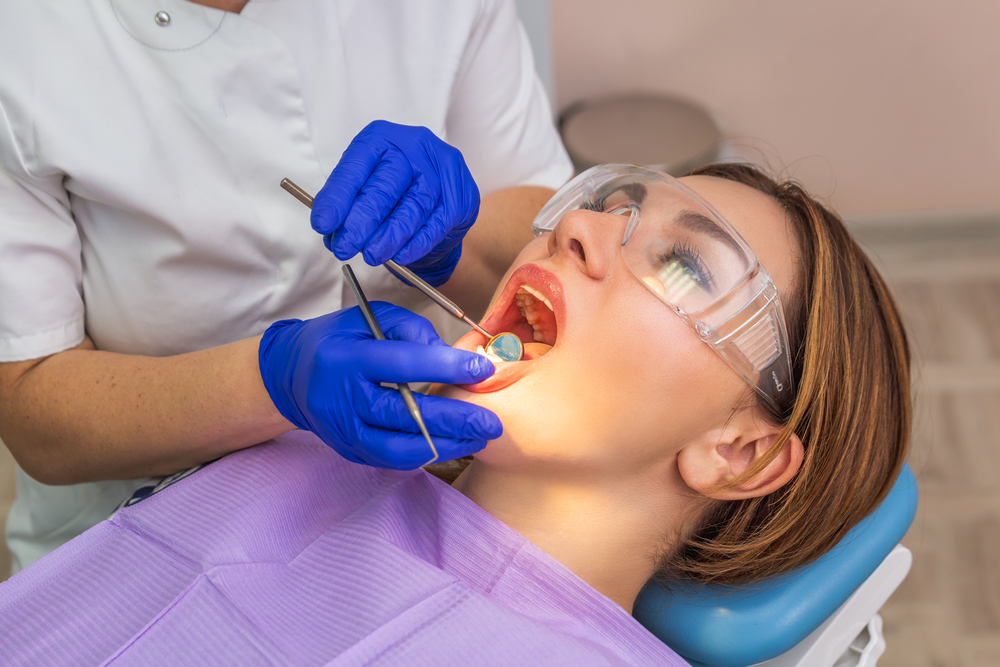Oral health is an integral part of overall well-being, often discussed in terms of cavities, gum disease, and toothaches. However, an aspect of oral health that isn’t as commonly addressed is its connection to sexual practices, specifically oral sex. Many might not realize that even your family dentist, in a general oral check-up, can detect signs related to your sexual activities. Understanding this can be an essential component of a dental education for adults, promoting better health practices and awareness.
The Mouth as a Window to Your Health
The mouth is more than just a tool for eating and speaking; it is a gateway to your body, reflecting a wide array of health conditions. Dentists are trained to look for signs of diseases and infections that manifest in the oral cavity. These signs can sometimes indicate systemic conditions, including sexually transmitted infections (STIs).
What Can Dentists Detect?
During a routine dental check-up, a dentist examines the mouth for any abnormalities. Here are some specific signs related to oral sex that a dentist might notice:
1. Oral HPV:
Human papillomavirus (HPV) can infect the mouth and throat, leading to oral warts. These can be transmitted through oral sex. A dentist might spot these warts during a general oral examination.
2. Herpes Simplex Virus (HSV):
HSV can cause cold sores or fever blisters around the mouth. While these are often associated with non-sexual transmission, HSV-1 and HSV-2 can both be transmitted through oral-genital contact. Dentists can identify these sores, which might prompt further discussion about sexual health.
3. Gonorrhea and Chlamydia:
These common STIs can infect the throat, causing symptoms such as a sore throat, swollen lymph nodes, and tonsillitis. Though these symptoms might overlap with other conditions, a dentist aware of these possibilities might recommend further testing.
4. Syphilis:
Oral syphilis can present as sores or ulcers in the mouth. These can be painless and go unnoticed by the patient but can be identified during an oral examination.
Importance of Transparency and Communication
While it might be uncomfortable to discuss sexual practices with your dentist, transparency is crucial for accurate diagnosis and treatment. If a dentist notices symptoms that could be linked to an STI, having background information can help in providing the best care. It’s part of a comprehensive approach to a dental education for adults, emphasizing the importance of being open about all aspects of health with your healthcare providers.
Preventative Measures and Best Practices
To maintain optimal oral health and reduce the risk of transmitting or contracting infections through oral sex, consider the following preventive measures:
1. Regular Dental Check-ups:
Consistent visits to the dentist allow for early detection of any oral health issues, including those related to sexual activities.
2. Good Oral Hygiene:
Brushing and flossing regularly keep the mouth clean and reduce the risk of infections.
3. Use of Barriers:
Dental dams or condoms can significantly reduce the risk of STIs during oral sex.
4. Avoid Oral Sex When There Are Mouth Sores:
If you have cold sores, cuts, or other injuries in your mouth, it’s best to avoid oral sex until they have fully healed to prevent transmission of infections.
5. Vaccinations:
The HPV vaccine is highly effective in preventing certain strains of HPV that can cause oral and other cancers. Discuss vaccination options with your healthcare provider.
Educating Adults on Comprehensive Oral Health
A modern dental education for adults should encompass more than just the basics of brushing and flossing. It should include information about the oral-systemic connection and how lifestyle choices, including sexual practices, can impact oral health.
Dentists play a pivotal role in this educational process. By creating an open environment where patients feel comfortable discussing all aspects of their health, dentists can better serve their patients. Educational initiatives might include:
– Workshops and Seminars:
Dental practices can host educational sessions about the links between oral health and sexual practices, promoting a holistic understanding of health.
– Literature and Online Resources:
Providing patients with brochures, articles, and reliable online resources can help them stay informed about these important issues.
– One-on-One Consultations:
Personalized advice during dental visits can help address specific concerns related to sexual health and oral hygiene.
Oral health is a comprehensive field that intersects with many aspects of our lives, including sexual health. Even your family dentist, in a general oral check-up, can detect signs that hint at your sexual activities. By promoting a dental education for adults that includes these aspects, we can foster a more informed and health-conscious society. Transparency with your dentist, combined with good hygiene practices and preventative measures, can help ensure your oral and overall health remains in peak condition.

